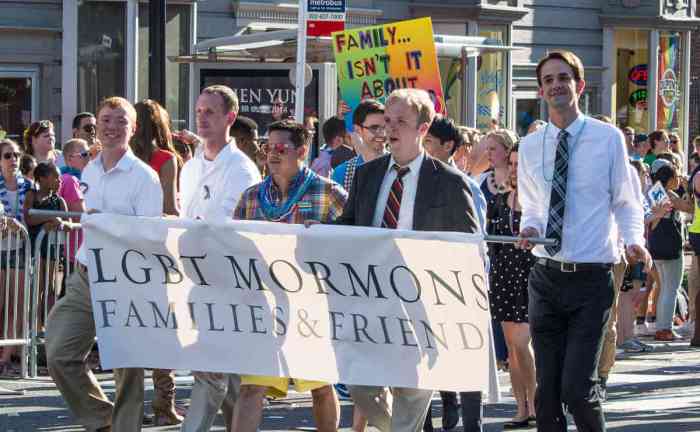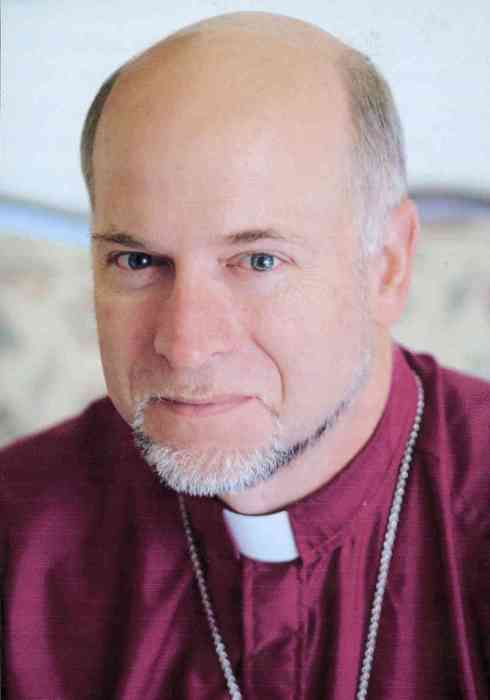Lambda Legal announced on November 1 that the Justice Department has dismissed two appeals pending at the San Francisco-based Ninth Circuit Court of Appeals, opening the way for enforcement of orders by federal courts in Washington State and Arizona in favor of Lambda’s claim that surviving same-sex partners who would have married their spouses prior to marriage equality should be entitled to statutory survivors’ benefits under the Social Security Act (SSA).
The SSA provides that if a married Social Security beneficiary dies, their surviving spouse is entitled to a small monetary death benefit and to a continuation of the monthly benefits that their deceased spouse had been receiving. As marriage equality began to achieve success on the state level beginning with Massachusetts, where same-sex couples were able to marry beginning in May 2004, entitlement to spousal survival benefits should have been extended to them, but the federal Defense of Marriage Act (DOMA) stood in the way, preventing the Social Security Administration from recognizing such marriages.
By the time DOMA was declared unconstitutional in 2013, marriage equality had been won in several more states, and the Social Security Administration began awarding benefits to surviving same-sex spouses of SSA beneficiaries who had been legally married for at least nine months before their spouses died. The nine-month durational requirement is statutory, enacted to prevent fraudulent attempts by people to marry dying people just to claim spousal benefits.
In 2015, in the Obergefell case, the Supreme Court declared that same-sex couples enjoy the same right to marry as different sex couples under the 14th Amendment of the Constitution, which was adopted in 1868. The question remained whether this newly-discovered right in an old constitutional provision could be extended retroactively to confer spousal status on same-sex couples who would have married but were barred by state laws from doing so, an issue that has played out particularly in states that recognize common-law marriages where long-time same-sex partners assert claims based on pre-marriage equality relationships. The two Lambda lawsuits took on this issue in the context of SSA survivor benefits.
One class of survivors whose claims for spousal benefits were denied was represented in a case Lambda filed in the District Court in Arizona in 2018 on behalf of Michael Ely. Ely married his partner of 43 years, James Taylor, in 2014, after the state of Arizona complied with a marriage equality court ruling. Ely and Taylor had begun living together in California in 1971 and relocated to Arizona in the early 1990s. Taylor was the “breadwinner” and Ely the “homemaker” in their relationship. They frequently spoke of marrying during their long relationship, and even contemplated going to California to get married when it became possible there earlier, but decided not to do so until their marriage would be recognized in Arizona. It was Taylor whose payroll taxes qualified him as a social security beneficiary. He was diagnosed with cancer in 2013.
When the men married on November 14, 2014, Taylor had only six months to live. After Taylor died, Ely filed an application for spousal benefits, which the Social Security Administration rejected, even though the federal government was obliged to recognize the marriage as a result of the Supreme Court’s June 2013 Windsor decision. The benefits were denied because the men had been married less than nine months when Taylor died. Lambda’s suit claimed that because the inability for these men to marry earlier was due to an unconstitutional Arizona law, Ely should be able to qualify based on evidence of their relationship showing that they would have married much earlier had it been legal.
US Magistrate Judge Bruce G. Macdonald, who was assigned by the district court to decide pretrial motions, ruled on May 26, 2020, that Lambda was correct. He certified the case as a class action of people similarly situated to Ely and Taylor, who had married once it became legal, but whose marriage was ended by the death of the social security beneficiary less than nine months after their marriage, but excluding people who would be part of the class action in the Thornton case, described below. One of the class members is James Obergefell, the lead plaintiff in the Supreme Court’s 2015 marriage equality case, who married James Arthur just shortly before Arthur’s death in 2013 and then sued to have their home state of Ohio recognize the marriage, filing a marriage equality case that ended up at the Supreme Court.
After certifying the class, Judge Macdonald issued an injunction prohibiting the Social Security Administration from “denying class members benefits without consideration of whether survivors of same-sex couples who were prohibited by unconstitutional laws barring same-sex marriage from being married for at least nine months would otherwise qualify for survivor’s benefits,” and sent the case back to Social Security for calculation and award of benefits to Ely. Under Macdonald’s ruling, members of the class can apply (or re-apply as the case may be) and seek benefits accordingly.
The second class of survivors — in a separate lawsuit filed by Lambda in Washington State in 2018 — was represented by Helen Thornton, who lived for 27 years in a marriage-like relationship with Margery Brown that would have been legalized were marriage equality available in the state of Washington when Brown died in 2006. That was one year before Washington recognized domestic partnerships and six years before it allowed same-sex marriages. In January of 2015, Thornton applied for survivor’s benefits based on Brown’s record of covered work. For purposes of determining “standing” to sue, the government conceded that the women would have married had it been possible to do so.
Social Security denied Thornton’s application, stating that because the women were not married when Brown died, it could not recognize Thornton as a legal surviving spouse and, at the time of her death, the State of Washington did not recognize same-sex marriages. Lambda’s lawsuit claimed that because the failure to allow or recognize same-sex marriages was unconstitutional, the government must accord surviving spouse status to those who can prove they would have been married had it been possible. The district court referred the case to Magistrate Judge J. Richard Creatura.
Judge Creatura recommended certifying a class consisting of “all persons nationwide who presented claims for social security survivor’s benefits based on the work history of their same-sex partner and who were barred from satisfying the marriage requirements for such benefits because of applicable laws that prohibited same-sex marriage,” but excluding people whose disqualification was due to the nine-months rule, since they would be class members in the Ely case. The judge also recommended that the district court order the government to reconsider class members’ claims and not to deny benefits to class members without considering whether they “would have satisfied the marriage requirements but for applicable laws that prohibited same-sex marriage.”
On September 11, 2020, District Judge James L. Robart accepted Judge Creatura’s report and recommendations, issuing the appropriate orders. The Trump Administration promptly appealed both decisions to the US Court of Appeals for the Ninth Circuit.
The Biden Administration’s decision to withdraw the appeals means that both decisions can go into full effect. In an announcement released on November 1, Lambda stated, “For the first time, surviving same-sex partners who were barred from marrying when their partners were alive have the same pathway to benefits if they apply now or in the future as those protected by last year’s ruling in Thornton, which had been limited to people who had previously applied by November 20.” Lambda has published guidance about the implementation of the rulings on its website, lambdalegal.org.
The Biden Administration’s decision to go beyond the scope of the Thornton ruling, which was based on the composition of the proposed class at the time Judge Robart signed his order, is an application of the general policy adopted by President Biden on Inauguration Day when he signed executive orders mandating equal treatment by the federal government for LGBTQ people and directed federal agencies to adjust their policies accordingly.



































